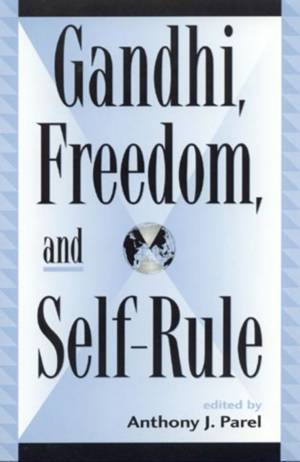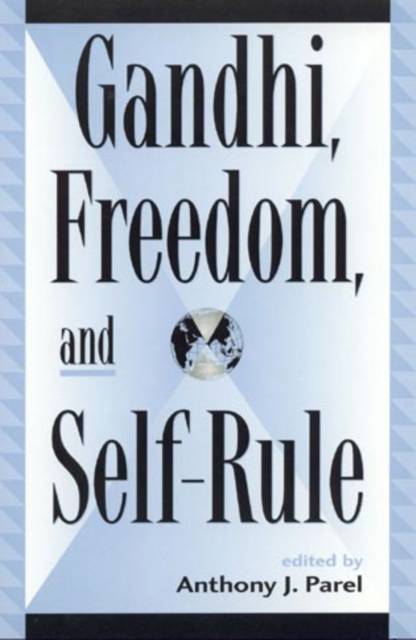
- Afhalen na 1 uur in een winkel met voorraad
- Gratis thuislevering in België vanaf € 30
- Ruim aanbod met 7 miljoen producten
- Afhalen na 1 uur in een winkel met voorraad
- Gratis thuislevering in België vanaf € 30
- Ruim aanbod met 7 miljoen producten
Zoeken
Gandhi, Freedom, and Self-Rule
€ 48,95
+ 97 punten
Omschrijving
This volume presents an original account of Mahatma Gandhi's four meanings of freedom: as sovereign national independence, as the political freedom of the individual, as freedom from poverty, and as the capacity for self-rule or spiritual freedom. Gandhi taught that human well-being, both for the individual and for the collective, requires the simultaneous enjoyment of all four of these aspects. Gandhi drew his ideas on the subject from both Eastern and Western sources. Thus they make an important contribution to the ongoing debate in both the East and the West on the scope and nature of freedom. They provide a vantage point from which to assess the adequacy of the reigning theories of liberalism in the West--such as the Western divisions of rights from duties and individual political freedom from spiritual freedom. Likewise, they throw useful light on the dangers inherent in the ascendant Indian ideology of hindutva (Hindu-ness), which concentrates on national independence and economic freedom and subordinates the freedom of the individual. In this volume, seven leading Gandhi scholars write on the four meanings of Gandhian freedom, engaging the reader in the ongoing debates in the East and the West and contributing to a new comparative political theory.
Specificaties
Betrokkenen
- Uitgeverij:
Inhoud
- Aantal bladzijden:
- 176
- Taal:
- Engels
- Reeks:
Eigenschappen
- Productcode (EAN):
- 9780739101377
- Verschijningsdatum:
- 14/06/2000
- Uitvoering:
- Paperback
- Formaat:
- Trade paperback (VS)
- Afmetingen:
- 147 mm x 226 mm
- Gewicht:
- 254 g

Alleen bij Standaard Boekhandel
+ 97 punten op je klantenkaart van Standaard Boekhandel
Beoordelingen
We publiceren alleen reviews die voldoen aan de voorwaarden voor reviews. Bekijk onze voorwaarden voor reviews.










